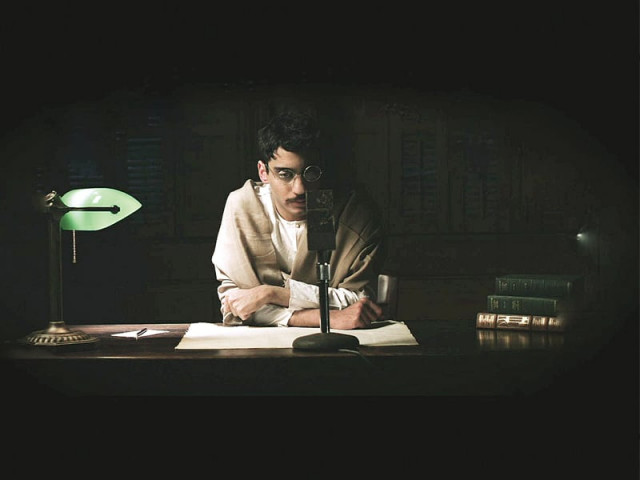Last Remarks: Disturbed minds
Last Remarks portrays the psychological impact of the British Raj and partition on people.

“You can translate my language but can you translate my sentiment?” The words of Arustu Jan, the protagonist in Last Remarks, send a chill down one’s spine. Jan’s unsettling query, delivered in immaculate Urdu, encapsulates the quintessence of the 20-minute film.
Revealing more about the eerie movie would spoil the cinematic experience that Umar Riaz, a student of the prestigious Tisch School of the Arts at New York University, has meticulously created regarding the psychological impact of the British Raj and the partition on the subcontinent’s populace.
Last Remarks debuted in Pakistan on June 5 at Ali Auditorium in Lahore, attracting the prominent literati and artists of the city.
The film, with its surreal imagery, focuses on how colonialism and division of the subcontinent gravely disturbed the psyche of the common people. The monologue of Last Remarks, adapted from a macabre classic by Edger Allan Poe, is delivered stoically by Jan, the faithful servant of his colonial master, Sir Edmund. Riaz has also seamlessly woven a series of snapshots in the protagonist’s grisly account. These picture stills, bereft of a narrative and thus left open to interpretation, imply that the young actor-director has the sensibility of a photographer who lets imagery relay the tale.
After the screening of his movie, the nascent filmmaker talked about the film industry in Pakistan. When asked how Pakistani cinema can revive itself or whether films like his can be absorbed by the masses, Riaz responded astutely: “Film is the ideal medium for Pakistan because you do not have to be literate to comprehend it. It communicates through a visual language that everyone can see and understand.” Thus he effectively rebutted the myth that the masses can only grasp flimsy ideas projected in B-grade movies.
Riaz also highlighted his own proactive approach for reviving the ailing film industry. “We need to stop complaining and start doing. The first step would be to encourage children to study the arts and get rid of the notion ‘filmkaar se shaadi kaun kare ga?’,” the NYU student stressed emphatically.
The initial screening of the film in New York was a hit amongst an audience completely oblivious to the historical context of the partition. “The response was surprisingly positive,” revealed Riaz. “Not many Americans know of the partition, so I didn't know how it would turn out.”
Yet his work did not have unanimous appeal amongst the viewers in Lahore. An old gentleman in the audience was unmoved and skeptical after the screening. “Why don’t you young film makers make something funny? There’s so much violence; we need to laugh,” he said.
While the macabre feel of the film certainly does not make it an easy watch, the movie’s cogent message is undeniable. As the plot unfolds, it becomes obvious that the film is not simply about a bygone era. In fact, Arustu’s grisly narrative is certainly valid for today’s imperialist.
Moreover, the movie effectively shows that historical events do not merely exist in textbooks or some academic realm — their effects continue to impact generations in myriad ways.
Many say that the only way to judge an art form is to assess how deeply it affects you. Even though Riaz is still a student, this humble offering manages to prick and tingle our intellect. Watch this one with uncles who fought wars or elderly family members who still retain their memories of the partition, for a wholesome evening of serious drama and dialogue.
The film will be screening in Karachi soon.
Published in The Express Tribune, June 9th, 2011.



















COMMENTS
Comments are moderated and generally will be posted if they are on-topic and not abusive.
For more information, please see our Comments FAQ